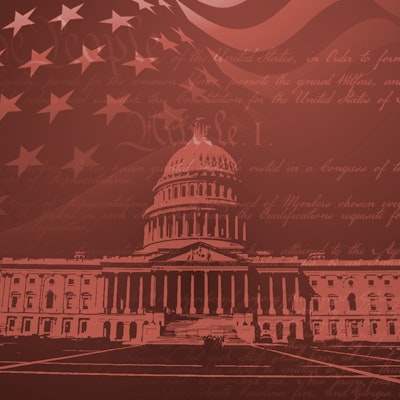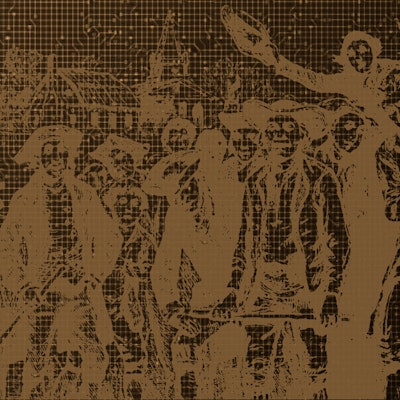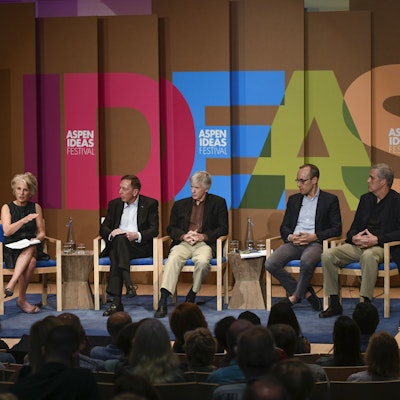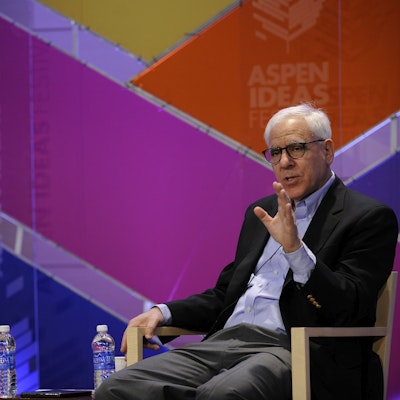
Show Notes
Director of National Intelligence Dan Coats goes over President Trump’s meeting with Russian President Vladimir Putin in this discussion held July 19th. These are his first public comments after standing by the intelligence community’s findings on Russian interference in the 2016 election. Trump has questioned the intelligence assessment. Coats manages America’s 17 intelligence agencies and serves as the President’s principal intelligence advisor. He spoke with Andrea Mitchell, chief foreign affairs correspondent for NBC News.
Explore
Related episodes


How can Americans restore their confidence in their government?


America’s “second founding” came on the heels of the Civil War, when the architects of the 13th, 14th and 15th amendments thought long and hard about how to enshrine civil rights that were truly for all into the U.S. Constitution. Despite an immediate backlash, including from the Supreme Court, and repercussions we’re still dealing with today, that second generation of fra...


When President Biden expanded the nation's Child Tax Credit in March, US Senator Michael Bennet applauded the move. Bennet, a democrat from Colorado, has been working to increase support for families since he introduced the American Family Act in Congress in 2017. Now he wants to make the Credit, which pays most American families $250 or $300/child each month, permanent. H...


Americans across the country will go to the polls and cast their ballots next week, but they won’t all do it in exactly the same way. The U.S. has 8,800 voting jurisdictions, which allows for local adaptation, but presents a challenge when it comes to standardizing elections. That variability might be part of what’s fueling a wave of mistrust about voting integrity, and a...


America’s Founders didn’t envision activist groups mobilizing on social media and disinformation spreading across the internet. Thanks to the web, new threats to democracy — like the January 6th attack on the US Capitol — have emerged. Nate Persily, professor of law at Stanford, talks with Jeffrey Rosen, president of the National Constitution Center, about why passion may...


Insanity can be defined as doing the same thing over and over again but expecting a different result. As a nation, America has cycled through the same defense and intelligence issues since the end of the Cold War. In her book "Insanity Defense," Congresswoman Jane Harman chronicles how four administrations have failed to confront some of the toughest national security poli...


Ransomware attacks on Colonial Pipeline and top meat producer, JBS, have catapulted malware into the mainstream. Ransomware isn't a new threat but it's getting significantly worse, say cybersecurity experts. In recent years, thousands of schools, government agencies, healthcare providers, and small businesses have fallen prey to it. The malicious software that's designed t...


Award-winning author and playwright Ayad Akhtar grapples with identity and belonging just like the protagonist in his book "Homeland Elegies." "In some ways being an outsider has given me a freedom to be able to withstand and bear some of the forced outsiderness. It gives me a perspective," he says. His fictional book, named one of the 10 Best Books of the Year by the New...


Humility, loyalty, rhetorical mastery — these were the leadership traits of President Abraham Lincoln.


After more than two decades of research, tax scholar Dorothy A. Brown discovered that America's tax system is not color-blind. In fact, societal racism is deeply embedded in it. From attending college to getting married to buying a home, Black Americans are financially disadvantaged compared to their white peers.


Afghanistan and Iraq: Looking back after 15 years and counting.


At age 25, Gaby Pacheco was the first undocumented Latina to testify in front of Congress.


What were the ideals of the framers, and what can they teach us about modern American democracy?


Is the internet loosening our collective grasp on the truth?


In this episode, you’ll hear from the nation’s new White House Chief of Staff, John Kelly.


Can the Republican party and the White House get in alignment on priorities and core values?


How well you handle difficulty may determine how happy and healthy you are later in life.


What is the Trump doctrine on foreign policy?


Is the Republican Party in the United States having an identity crisis?


Former FBI Director James Comey says transparency and a desire to maintain his agency’s credibility prompted him to reopen the Hillary Clinton email investigation in 2016.






